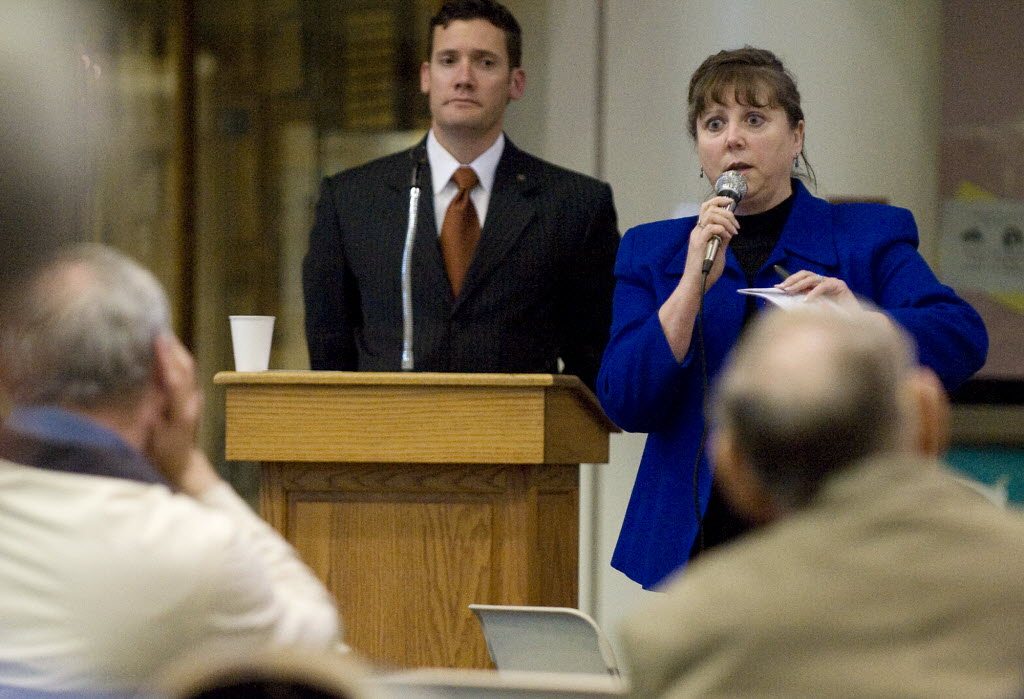Discussions inched forward Monday night on setting a new ethics and conduct policy for the Vancouver City Council, but councilors wary of several details asked for another workshop on the topic.
Over the last year, the city council has updated all of its policies, but the ethics and conduct code has remained as the most thorny — particularly in the wake of the investigation and subsequent censure of Councilor Jeanne Harris following a now-infamous meeting last September when she sparred with the mayor, another councilor and a citizen speaker.
Harris’ culpability in that situation was decided by a three person ad-hoc committee that included the two councilors who filed the complaint against her. The new policy would remove the investigation from the hands of the city council and move it to an impartial hearings examiner, City Attorney Ted Gathe explained Monday night. The council will continue to have final say over what punishment would be meted out.
Councilors spent time debating whether the hearings examiner should be permitted to make recommendations to the council about what level of punishment would be appropriate. Harris argued that a hearings examiner is impartial, and his or her recommendation of punishment would be a good “bar” to start from. Politics weigh too heavily on the city council to be impartial, said Harris, who was given a public letter of reprimand last year.
But Councilor Jack Burkman said that without written guidelines for the examiner to follow, there wouldn’t be a way for he or she to advise on punishments. Councilor Jeanne Stewart added that if the council gave a punishment more harsh than what the hearings examiner recommended, “of course there would be an accusation of politics.”
“Then I’m not going to support this,” Harris said.
The time spent on this issue is beginning to eclipse time spent on most of the other business that comes before the city council: the talk Monday pushed past the workshop’s one hour and 15 minute deadline, and another workshop on the policy will be scheduled. The council already held an hourlong workshop on the topic last month.
But another change would mean that an outburst like Harris’ last year wouldn’t even be covered under the updated ethics policy, which was first put in place in 1999. Gathe recommended that part of the code — which governs conduct — be moved to the council meetings policy, or be written as a separate policy.
Gathe last month had pushed to keep conduct and ethics as part of the same policy, saying the two overlap. But he said Monday that other cities with ethics policies do not typically include conduct in the rules.
The current conduct code simply states that councilors “will at all times treat each other with respect and dignity,” with no reference to citizens, and was the clause under which Harris was punished last fall.
The proposed new language includes a sweeping definition of conduct: “Council members shall refrain from abusive conduct, charges of a personal nature or verbal attacks upon the character or motives of other members of council, boards, commissions, committees, city staff, or the public.” It does not include definitions of what a “charge of a personal nature” or a “verbal attack” is. It wasn’t clear Monday what penalties a councilor could face if they violate a code of conduct.
The updated policy sets forward an eight-step program for filing an ethics complaint. A citizen or councilor would file with the city council and city manager, which would then be given a “threshold review” by the city attorney’s office. The city attorney can dismiss a claim or refer it to the city council, who then would decide to send it to a hearings examiner. The steps include specific timelines for decisions — including that the hearings examiner has up to 60 days to investigate a case — and allows the accused councilor 10 days to accept a finding or challenge it.
Andrea Damewood: 360-735-4542, http://www.facebook.com/reporterdamewood, http://www.twitter.com/col_cityhall or andrea.damewood@columbian.com.



